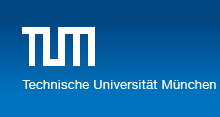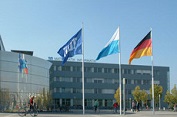-
Selforganizing Data Structures
- D.D. Sleator, R.E. Tarjan. Amortized efficiency of list update and paging rules. Commun. ACM, 28(2): 202-208, 1985.
PDF doi:10.1145/2786.2793
- N. Reingold, J. Westbrook, D.D. Sleator. Randomized competitive algorithms for the list update problem. Algorithmica 11(1):15-32, 1994.
PDF doi:10.1007/BF01294261
- D.D. Sleator, R.E. Tarjan. Amortized efficiency of list update and paging rules. Commun. ACM, 28(2): 202-208, 1985.
PDF doi:10.1145/2786.2793
-
Paging and Caching
- D.D. Sleator, R.E. Tarjan. Amortized efficiency of list update and paging rules. Commun. ACM, 28(2):202-208, 1985.PDF doi:10.1145/2786.2793
- A. Fiat, R.M. Karp, M. Luby, L.A. McGeoch, D.D. Sleator, N.E. Young. Competitive paging algorithms. J. Algorithms, 12(4): 685-699, 1991. PDF doi:10.1016/0196-6774(91)90041-V
- N.E. Young. On-Line file caching. Algorithmica, 33(3):371-383, 2002. PDF doi:10.1007/s00453-001-0124-5
- D.D. Sleator, R.E. Tarjan. Amortized efficiency of list update and paging rules. Commun. ACM, 28(2):202-208, 1985.PDF doi:10.1145/2786.2793
-
Scheduling: Makespan Minimization
- V.V. Vazirani. Approximation Algorithms. Springer Verlag, Berlin, 2001, pages 79-83.PDF doi:10.1007/978-3-662-04565-7
- L.A. Hall. Approximation algorithms for scheduling. Chapter 1, page 14. In Approximation Algorithms for NP-hard Problems, edited by D.S. Hochbaum, PWS Publishing Co., 1996.
- M. Englert, D. Özmen, M. Westermann. The power of reordering for online minimum makespan scheduling. SIAM J. Comput., 43(3):1220-1237, 2014.PDF doi:10.1137/130919738
- V.V. Vazirani. Approximation Algorithms. Springer Verlag, Berlin, 2001, pages 79-83.PDF doi:10.1007/978-3-662-04565-7
-
Power Management
- S. Irani, S. K. Shukla, R. K. Gupta. Online strategies for dynamic power management in systems with multiple power-saving states. ACM Trans. Embedded Comput. Syst., 2(3): 325-346, 2003. PDF doi:10.1145/860176.860180
- J. Augustine, S. Irani, and C. Swamy. Optimal power-down strategies. SIAM J. Comput., 37(5): 1499-1516, 2008. PDF doi:10.1137/05063787X
- S. Irani, S. K. Shukla, R. K. Gupta. Online strategies for dynamic power management in systems with multiple power-saving states. ACM Trans. Embedded Comput. Syst., 2(3): 325-346, 2003. PDF doi:10.1145/860176.860180
-
Online Matching
- R.M. Karp, U.V. Vazirani, V.V. Vazirani. An optimal algorithm for on-line bipartite matching. Proceedings of the 22nd Annual ACM Symposium on Theory of Computing, 352-358, 1990. PDF doi:10.1145/100216.100262
- B. Birnbaum, C. Mathieu. On-line bipartite matching made simple. SIGACT News, 39(1):80-87, 2008. PDF doi:10.1145/1360443.1360462
- A. Mehta, A. Saberi, U.V. Vazirani, V.V. Vazirani. AdWords and generalized online matching. J. ACM, 54(5) 22, 2007. PDF doi:10.1145/1284320.1284321
- R.M. Karp, U.V. Vazirani, V.V. Vazirani. An optimal algorithm for on-line bipartite matching. Proceedings of the 22nd Annual ACM Symposium on Theory of Computing, 352-358, 1990. PDF doi:10.1145/100216.100262
-
Min-Cut
- D.R. Karger, C. Stein. A New approach to the minimum cut problem. J. ACM 43(4): 601-640, 1996. PDF doi:10.1145/234533.234534
Material also in R. Motwani, P. Raghavan. Randomized Algorithms. Cambridge University Press, 1995, pages 7-9 and 289-295.PDF - M. Stoer, F. Wagner. A simple min-cut algorithm. Journal of the ACM. 44(4):585, 1997. PDF doi:10.1145/263867.263872
- D.R. Karger, C. Stein. A New approach to the minimum cut problem. J. ACM 43(4): 601-640, 1996. PDF doi:10.1145/234533.234534
-
The Probabilistic Method
- M. Mitzenmacher, E. Upfal. Probability and Computing: Randomized Algorithms and Probabilistic Analysis. Cambridge University Press, 2005, pages 126-134.
- M. Mitzenmacher, E. Upfal. Probability and Computing: Randomized Algorithms and Probabilistic Analysis. Cambridge University Press, 2005, pages 126-134.
-
Energy Conservation in Data Centers
- S. Albers. On energy conservation in data centers. Proc. 29th ACM Symposium on Parallelism in Algorithms and Architectures (SPAA17), 2017. PDF
- M. Lin, A.Wierman, L.L.H. Andrew, E. Thereska. Dynamic right-sizing for power-proportional data centers. IEEE/ACM Trans. Net., 21(5):1378-1391, 2013. PDF doi:10.1109/TNET.2012.2226216
- S. Albers. On energy conservation in data centers. Proc. 29th ACM Symposium on Parallelism in Algorithms and Architectures (SPAA17), 2017. PDF
-
Refined Input Models
- S. Albers, D. Frascaria. Quantifying competitiveness in paging with locality of reference. Proc. 42nd International Colloquium on Automata, Languages, and Programming (ICALP15), Springer LNCS 9134, 26-38, 2015. PDF doi:10.1007/978-3-662-47672-7_3
- S. Albers, S. Lauer. On list update with locality of reference. J. Comput. Syst. Sci., 82(5):627-653, 2016. PDF doi:10.1007/978-3-540-70575-8_9
- S. Albers, D. Frascaria. Quantifying competitiveness in paging with locality of reference. Proc. 42nd International Colloquium on Automata, Languages, and Programming (ICALP15), Springer LNCS 9134, 26-38, 2015. PDF doi:10.1007/978-3-662-47672-7_3
Sarntal-Kurs Moderne Algorithmik: Randomisiert, online, approximativ
- Leitung:
Prof. Dr. Susanne Albers, Prof. Dr. Rolf Wanka - Termin: 17. bis 29. September 2017
- Anmeldung:
Bewerbung über die Ferienakademie bis 9. Mai 2017 - Vorbesprechung:
Donnerstag, 20.07.2017, 16:00-18:00, im Seminarraum MI 03.11.018 für eingeladene Teilnehmer
Themenliste Prof. Albers
Themenliste Prof. Wanka
-
Fundamentals of Optimization Problems
- G. Ausiello, P. Grescenzi, G. Gambosi, V. Kann, A. Marchetti-Spaccamela, M. Protasi. Complexity and Approximation - Combinatorial Problems and Their Approximability Problems. pp. 22-38 PDF, pp. 87-152 PDF. Springer-Verlag: Berlin-Heidelberg-New York, 1999.
- J. Hromkovič. Algorithmics for Hard Problems - Introduction to Combinatorial Optimization, Randomization, Approximation, and Heuristics. pp. 213-238 PDF. Springer-Verlag: Berlin-Heidelberg-New York, 2001.
- R. Wanka. Approximationsalgorithmen - Eine Einführung. pp. 81-85 PDF. B. G. Teubner Verlag: Wiesbaden, 2006.
- G. Ausiello, P. Grescenzi, G. Gambosi, V. Kann, A. Marchetti-Spaccamela, M. Protasi. Complexity and Approximation - Combinatorial Problems and Their Approximability Problems. pp. 22-38 PDF, pp. 87-152 PDF. Springer-Verlag: Berlin-Heidelberg-New York, 1999.
-
The Knappsack Problem
- J. Hromkovič. Algorithmics for Hard Problems - Introduction to Combinatorial Optimization, Randomization, Approximation, and Heuristics. pp. 238-248 PDF. Springer-Verlag: Berlin-Heidelberg-New York, 2001.
- J. Hromkovič. Algorithmics for Hard Problems - Introduction to Combinatorial Optimization, Randomization, Approximation, and Heuristics. pp. 238-248 PDF. Springer-Verlag: Berlin-Heidelberg-New York, 2001.
-
Dynamic Programming for Counting the Number of Knapsack Solutions
- M. Dyer. Approximate counting by dynamic programming. pp. 693-699 PDF. In: Proc. 35th ACM Symp. on Theory of Computing (STOC), 2003. 10.1145/780542.780643.
- P. Gopalan, A Klivans, R. Meka, D. Stefankovic, S. Vempala, E. Vigoda. An FPTAS for #Knapsack and Related Counting Problems. pp. 817-826 PDF. In: Proc. 52nd IEEE Symp. on Foundations of Computer Science (FOCS), 2011. doi:10.1109/FOCS.2011.32.
- M. Dyer. Approximate counting by dynamic programming. pp. 693-699 PDF. In: Proc. 35th ACM Symp. on Theory of Computing (STOC), 2003. 10.1145/780542.780643.
-
Particle Swarm Optimization (PSO) and Parameter Selection
- M. Jiang, Y. P. Luo, S. Y. Yang. Particle Swarm Optimization - Stochastic Trajectory analysis and parameter selection. pp. 179-198 PDF. Swarm Intelligence - Focus on Ant and Particle Swarm Optimization, 2007.
- For background information also refer to: Sabine Helwig. Particle Swarms for Contrained Optimization. (full text is available here). Ph.D. Thesis, University of Erlangen-Nuremberg, 2010.
- M. Jiang, Y. P. Luo, S. Y. Yang. Particle Swarm Optimization - Stochastic Trajectory analysis and parameter selection. pp. 179-198 PDF. Swarm Intelligence - Focus on Ant and Particle Swarm Optimization, 2007.
-
Particle Swarm Optimization for Discrete Problems (PSO) (reserviert)
- M. Mühlenthaler, A. Raß, M. Schmitt, A. Siegling, R. Wanka. Runtime Analysis of a Discrete Particle Swarm Optimization Algorithm on Sorting and OneMax. pp. 13-24 PDF. Conference on Foundations of Genetic Algorithms 2017. doi: 10.1145/3040718.3040721.
- M. Mühlenthaler, A. Raß, M. Schmitt, A. Siegling, R. Wanka. Runtime Analysis of a Discrete Particle Swarm Optimization Algorithm on Sorting and OneMax. pp. 13-24 PDF. Conference on Foundations of Genetic Algorithms 2017. doi: 10.1145/3040718.3040721.
-
Evolutionary Algorithms for Minimum Spanning Trees (EA)
- F. Neumann, I. Wegener. Randomized local search, evolutionary algorithms, and the minimum spanning tree problem. pp. 32-40 PDF. Theoretical Computer Science 378, 2007. doi:10.1016/j.tcs.2006.11.002.
- F. Neumann, I. Wegener. Randomized local search, evolutionary algorithms, and the minimum spanning tree problem. pp. 32-40 PDF. Theoretical Computer Science 378, 2007. doi:10.1016/j.tcs.2006.11.002.
-
The Satisfiability Problem: Random Walk and Derandomization
- U. Schöning. A Probabilistic algorithm for k-SAT based on limited local search and restart. pp. 615-623 PDF. Algorithmica 32, 2002. Paper beim Autor.
- R. A. Moser, D. Scheder. A Full Derandomization of Schöning's k-SAT Algorithm. pp. 245-251 PDF. In: Proc. 43rd ACM Symp. on Theory of Computing (STOC), 2011. doi:10.1145/1993636.1993670.
- U. Schöning. A Probabilistic algorithm for k-SAT based on limited local search and restart. pp. 615-623 PDF. Algorithmica 32, 2002. Paper beim Autor.
-
Constructive Proof of the Lovasz Local Lemma
- H. Gebauer, R. A. Moser, D. Scheder, E. Welzl. The Lovasz Local Lemma and Satisfiability. pp. 30-54 PDF. Efficient Algorithms - Essays Dedicated to Kurt Mehlhorn on the Occasion of His 60th Birthday, 2009. doi:10.1007/978-3-642-03456-5_3.
- H. Gebauer, R. A. Moser, D. Scheder, E. Welzl. The Lovasz Local Lemma and Satisfiability. pp. 30-54 PDF. Efficient Algorithms - Essays Dedicated to Kurt Mehlhorn on the Occasion of His 60th Birthday, 2009. doi:10.1007/978-3-642-03456-5_3.
-
Approximate Counting: The Number of Colorings (reserviert)
- R. Wanka. Approximationsalgorithmen - Eine Einführung. pp. 151-189 PDF. Teubner, 2006.
- R. Wanka. Approximationsalgorithmen - Eine Einführung. pp. 151-189 PDF. Teubner, 2006.




